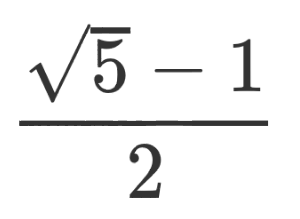One downside to floating around atheist/skeptic communities so long is that I’ve seen a lot of people leave. The most painful departures are the ones where people get frustrated with their peers over their inaction or inability to comprehend, or burn out from having to explain concepts that shouldn’t need explaining. These cases always leave me self-conscious of my own silence and inaction, wondering if I’d help stem the tide if I became more active.
For four years I have written and given talks about the same core message: Movement atheism must expand its ambitions to include the interests and needs of communities systematically disenfranchised in ways far more harrowing than merely existing as an atheist (within the US context).
Little changed in the five years that I was a part of organized secular communities. To what degree things have changed is debatable. For me, the point is that these spaces haven’t evolved to the point that they are welcoming or even ideal for certain groups of people.
Over time, I was able to better understand how this resistance to change that infests these spaces has a lot to do with select donors sustaining these spaces as well as those occupying executive and board leadership positions.
The thing is, the writing was always on the wall. It just took a considerable amount of time for me to admit it to myself.
Ouch. Sincere Kirabo has come a long way since 2015, when he earned a scholarship from American Atheists. He’s also been a writer for The Establishment, Huffington Post, the Good Men Project, and Everyday Feminism. He was the Social Justice Coordinator for the American Humanist Association until a week ago. He remains frustrated with the inaction of leaders within the atheist/skeptic movement. How could you not, when you’re dealing with shit like this:
Sexism continues to be a huge problem with this movement. And by “problem” I mean that it exists and most men choose to either deny it, minimize it, or blame victims.
I’m directly and indirectly connected to countless women who were once a part of this movement and have since left. It’s sad and disgusting and infuriating that there are whisper networks within secular circles so that women can warn each other about certain men rumored to be sexual harassers or abusers.
And yes, several women have reported instances of sexual misconduct and even rape to me. I’m not at liberty to discuss these incidents in any detail, but I will say that all three cases involve men who were at one point connected to organized humanism or atheism.
A lot of people have dropped out of the movement for a lot less.
My bandwidth has been depleted and there’s no way that I can fully recover and advance the causes that mean the most to me until I remove myself from spaces that preserve/propagate elitist rationalism, complacency, and general white nonsense.
I know some are interested in knowing what’s next for me. At this time, all I will say is that I and several others are in the process of building a platform dedicated to cultivating Black humanist culture with a focus on creating a world that honors the “radical” idea of free Black people. Details will follow in the near future.
… so it’s to Kirabo’s credit that he’s not dropping out of the movement. He’s switched from working for change within existing orgs, to creating his own organisations that are less problematic. I heartily approve, though had Kirabo dropped out instead I’d also approve. Even if the change in tactics doesn’t work, it’ll at least create a safe space for people to promote secularism without having to hold their nose over casual bigotry.



